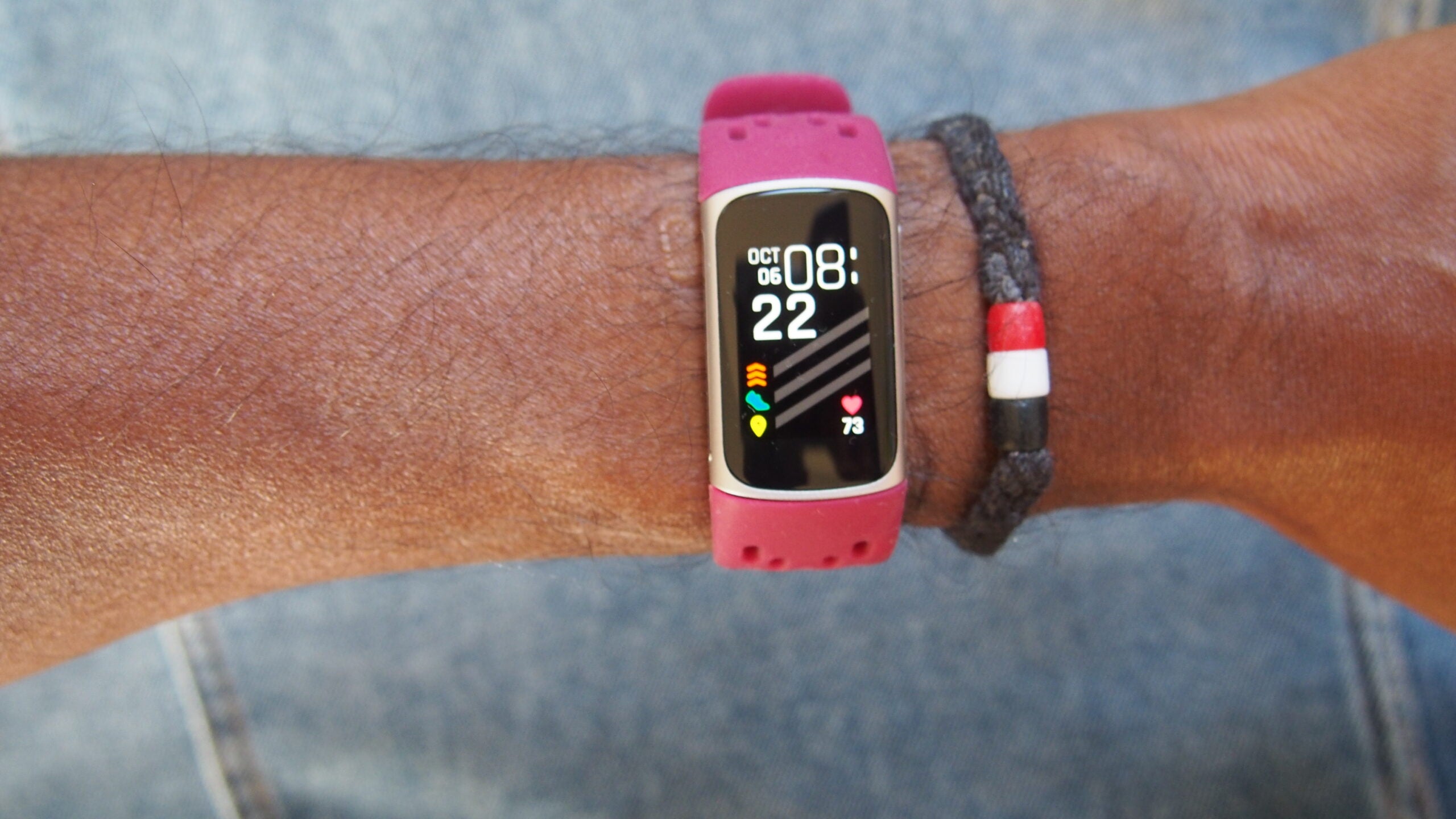Are Fitness Trackers Accurate for HR?
Fitness trackers have become increasingly popular in recent years, as they offer insights into a person’s health, fitness level, and more. Many fitness trackers boast of the ability to accurately measure heart rate, but is that really true? In this article, we’ll take a closer look at whether fitness trackers give us reliable readings of our hearts and see how (and if) they compare to more accurate methods of measuring heart rate.
List of Content
- 1. Introduction to Fitness Trackers
- 2. The Accuracy of Fitness Trackers
- 3. Analyzing Fitness Trackers’ Accuracy for HR
- 4. Advantages of Fitness Trackers for HR Tracking
- 5. Disadvantages of Fitness Trackers for HR Tracking
- 6. Conclusion:
- You Ask, I answer

1. Introduction to Fitness Trackers
Fitness trackers are electronic devices that keep track of your activity. They track the steps taken, distance traveled, calories burned, heart rate, sleep quality, and more. Using data from these trackers, you can set goals and keep track of your progress.
Most fitness trackers provide feedback and customize your experience to match your fitness level. Many devices come with their own companion apps, giving you detailed reports of your activity. You can also connect with other compatible technologies and applications, such as smartphones or online fitness communities.
Getting a fitness tracker can help you increase energy levels, get healthier, and reach your fitness goals. Here are some of the benefits of using one:
- Real-time feedback: Trackers provide feedback that lets you quickly adjust your exercise routine to reach your goals.
- Motivation: Trackers help you become more aware of your health and fitness goals, and give you a push to stay on track.
- Convenience: Trackers sync with other technologies or applications, which makes tracking your health and fitness goals easier.
- Data analysis: Trackers can produce detailed reports that outline progress over time.
Fitness trackers come in different shapes, sizes, and levels of complexity. Taking the time to understand how they work and what features they offer is a great way to find the tracker that is right for you.

2. The Accuracy of Fitness Trackers
Fitness trackers and smartwatches are digital devices designed to measure and report a variety of physical metrics, such as footsteps taken, distance traveled, heart rate, calories burned, sleep pattern, etc. Understanding the accuracy of the data you collect is essential to make these devices beneficial.
Steps Count: Steps count is one of the primary metrics measured using a fitness tracker. It provides a general measure of physical activity done during the day. Studies show that fitness trackers do a pretty good job in measuring steps taken when compared to pedometers and other measuring devices. However, different fitness trackers may differ in accuracy due the measurement algorithms they use. So, it is important to test and research the device you are intending to buy.
Distance traveled: When you are engaged in a sport such as jogging or cycling, the distance traveled is an important metric. This is usually calculated using GPS (global positioning system). As the GPS signal varies in different areas and depending upon the number of satellites available, the measurements may not be completely accurate. It is best to use a route which is used often and keep testing the device.
Heart rate monitor: Most wrist-worn fitness trackers come with a heart rate monitor, and determining the accuracy can be challenging. Generally, optical heart rate monitors are designed to provide an estimate of your heart rate while doing a sustained exercise. Other technologies such as digital chest strap sensors may be more accurate, but often come with additional accessories, and hence may have additional cost.
- In order to get accurate measurements from a fitness tracker, it is important to pick the right device for your need.
- Always test the device and compare it to other devices in order to determine accuracy.
- Optical heart rate monitors are general for sustained exercises, while chest straps may be more accurate for all exercises.
3. Analyzing Fitness Trackers’ Accuracy for HR
Fitness trackers are a popular way of monitoring activity, heart rate, and sleep patterns. While they are typically accurate when measuring basic metrics such as steps and distance, they are not as reliable when it comes to heart rate. Before you buy a fitness tracker, it’s important to consider how accurate its heart rate monitor is.
Indoor monitoring
When testing a fitness tracker’s accuracy for heart rate in an indoor settings, it is best to use a traditional chest strap monitor. This will give you a baseline to compare the fitness tracker’s heart rate measurements against. It’s important to note that due to people’s natural physical differences, their heart rate can vary significantly from one person to another.
Outdoor monitoring
When testing a fitness tracker’s accuracy for heart rate outdoors, it is best to use a combination of chest strap and sports watch monitor. This will give you a better understanding of both the fitness tracker’s and the traditional monitors accuracy in varying conditions and scenarios. This is especially important when looking to use the tracker outdoors, as chances of encountering wireless interference is increased.
What to look for
When choosing a fitness tracker for tracking HR, there are several key points to consider:
- Does the tracker have a chest strap option?
- What type of heart rate sensor does it use (optical, chest strap, etc)?
- Does the tracker come with a sport watch monitor?
- Does the tracker have wireless interference protection?
- What are the tracker’s battery life and charging time?
Paying attention to these points when choosing a fitness tracker can help ensure that you get the most accurate heart rate readings possible. With accurate heart rate readings, you’ll be better able to understand how your body is responding to physical activity.
4. Advantages of Fitness Trackers for HR Tracking
Accurate Data Collection
Using a fitness tracker to track HR can provide employers with precise and accurate results as compared to manual tracking. Wearable gadgets track heart rate continuously—in real time—without manual intervention. This helps to collect more accurate HR data, as manual data collection is time consuming and prone to errors.
Saves Time and Resources
Employers can save a lot of their time and resources by implementing this method of HR tracking in the workplace. Automated data collection reduces the need for manual data entry and tracking of results. This allows employers to focus their resources elsewhere and save themselves stress and time.
Motivating Employees
Using fitness trackers for HR tracking can be effective in motivating employees. It can boost morale in the workplace and encourage employees to work hard and stay productive. Employees can also set their own personal goals while tracking and view their performance over a period of time. This can help keep them motivated and driven in their work.
Continuous Tracking
This method of HR tracking is also beneficial as it can provide employers with continuous tracking of the employee’s HR. They can monitor employees’ health and productivity over a long period of time and make accurate decisions regarding their performance. This can help ensure the employee’s health and safety in the workplace.
5. Disadvantages of Fitness Trackers for HR Tracking
Imprecise Data: Fitness trackers, when used for HR tracking, can sometimes be unreliable.Most trackers don’t track 100% accurately and so it’s difficult to rely on data from them when measuring HR during exercise. Additionally, environmental factors like temperature, humidity, and elevation can also interfere with accuracy.
Inactivity Detection: Even if the data is accurate, fitness trackers are not always capable of truly understanding the intensity of one’s workout. For example, when doingpush ups or squats, it is hard for the tracker to measure the peak heart rate that the user experiences. Additionally, when the user is resting,the tracker often misreads inactivity as a general low-intensity exercise.
Cost: Fitness trackers are not an economical choice for HR tracking. Most trackers cost several hundred dollars and require replacement when the sensors within them wear out, which can be as soon as 6-12 months of use. Additionally, unless you buy a tracker directly from the HR software, you will have to dedicate extra resources and pay extra to integrate it with the HR system.
Human Errors: Human errors can also contribute to inaccurate data. If the user doesn’t wear the tracker properly or loses it, the data provided won’t be valuable. Furthermore, if the user doesn’t correctly use the HR software, data errors may occur. Other human errors like forgetting to set the time or not updating the tracker also affect the accuracy of the data..
6. Conclusion:
Fitness trackers: accuracy, reliability, and effectiveness
When it comes to tracking heart rate, there is good news and there is bad news. The good news is, if you buy a good quality device and follow the instructions provided, your device should be able to accurately track your HR when you’re at rest or doing light exercise. Trackers with chest straps are usually the most accurate.
The bad news is, fitness trackers with wrist straps are often off in their readings, as they may pick up movement from a nearby muscle and record it as HR. Also, the more intense the exercise, the less reliable trackers become. Different skin pigmentation has also been known to affect the accuracy of trackers.
- Chest strap trackers are the most accurate
- Wrist strap trackers may pick up movement from nearby muscles
- The more intense the exercise, the less reliable trackers become
- Skin pigmentation can also affect accuracy
Overall, fitness trackers are generally pretty accurate for measuring HR during rest or light exercises, however, results may vary from person to person. If you want to be sure you’re getting accurate readings, it is best to use a chest strap to track your HR.
You Ask, I answer
Q: What is a fitness tracker?
A: A fitness tracker is a wearable device that logs your physical activity and other fitness data. It can track your heart rate (HR), steps taken, calories burned, distance, and more.
Q: Are fitness trackers accurate for tracking heart rate?
A: Yes, fitness trackers can provide accurate and reliable heart rate data. However, accuracy can be affected by several factors such as the model of the fitness tracker, the type of sensors used, and even your individual physiology.
Q: What can I do to improve the accuracy of my fitness tracker?
A: It’s recommended to wear your fitness tracker at the same position on your body each and every time, as this helps to maintain accuracy. You should also properly clean the sensors from sweat and dirt and make sure to regularly pair your tracker with its app or software.
Q: Are there any medical applications for fitness trackers?
A: Yes, fitness trackers can be used for monitoring heart rate patterns and abnormalities, as well as for managing and monitoring the progress of certain cardiovascular and lung disorders.
To conclude, fitness trackers are a convenient way to track one’s personal performance, and for most people they will provide adequate accuracy. However, for those looking to take their fitness to the next level it is important to look for ways to measure your heart rate in addition to what your fitness watch might provide. With the right combination of both, you’ll have the data you need to reach your goals safely and successfully.


